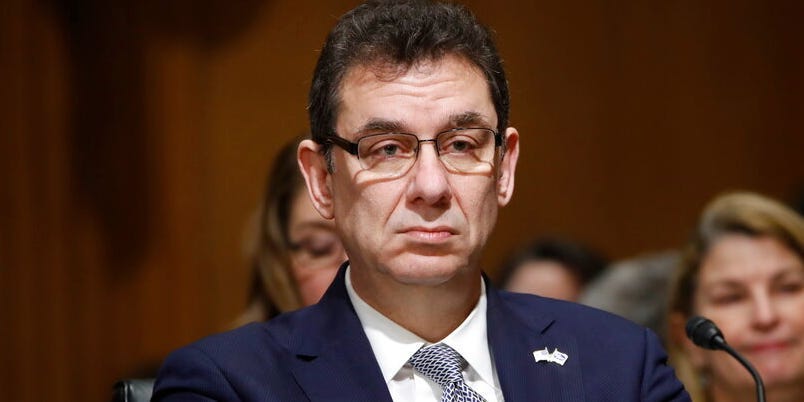
AP Photo/Pablo Martinez Monsivais
- Getting only one dose of a leading coronavirus vaccine would be “a very big mistake,” Pfizer CEO Albert Bourla said Tuesday.
- Pfizer’s coronavirus vaccine is given as two doses, spaced 21 days apart.
- The vaccine is 95% effective at preventing COVID-19 when people get two doses.
- New data released Tuesday suggested a single dose was about 52% effective at prevent COVID-19, in the time until people got their second shot.
- The UK began dosing the public with Pfizer’s vaccine on Tuesday, and US regulators are preparing to make a decision on the shot in a matter of days. An expert panel is set to meet Thursday to discuss Pfizer’s application for emergency authorization in the US.
- Visit Business Insider’s homepage for more stories.
A leading coronavirus vaccine may provide some protection after a single dose, but the most dramatic benefits come from getting a second booster shot as well.
Data released Tuesday suggested that people get partial protection from Pfizer’s coronavirus vaccine about 10 days after receiving the first injection. The vaccine is given as two doses, 21 days apart, and the vaccine is much more effective after the second dose, the data show.
Albert Bourla, Pfizer’s CEO, said on a Tuesday press call that it would be “a very big mistake” for people to only get one dose.
The UK began giving people Pfizer’s vaccine on Tuesday, as US regulators entered the final stages of their review. An expert panel is set to meet Thursday to review the company’s application for an emergency OK in the US. By all accounts, public-health authorities around the world plan to give Pfizer’s vaccine only as a two-dose regimen.
A single dose of the vaccine was about 52% effective at preventing COVID-19, compared to a placebo group, in the time before people got their second shots.
Bourla said that the partial protection could help "from an epidemiology point of view," but cautioned against taking the implications any further.
"I say it's a very big mistake if anyone tries to do it with only one dose, when with two, you almost double the protection," Bourla said.
The data also confirmed the overwhelming success that Pfizer announced in November: a two-dose regimen was 95% effective at preventing disease. The study enrolled more than 40,000 volunteers, randomizing them to either placebo injections or to Pfizer's vaccine.
"People need to take two doses to be able to feel confident that they are protected and have a 95% chance of being protected," he added.
Scientists at the FDA also acknowledged modest benefits after the first dose, but emphasized the limitations of that finding.
The study was designed to study the two-dose regimen, limiting the length of follow-up on volunteers after one shot to only the three-week period until they got a booster dose.
The agency's scientists wrote "there does seem to be some protection against COVID-19 disease following one dose; however, these data do not provide information about longer term protection beyond 21 days after a single dose."
Overall, the FDA's write-up raised no major concerns for Pfizer's vaccine, bolstering its chances of securing an emergency OK in the US. Experts anticipate an authorization decision by the agency within days of Thursday's advisory committee meeting.

